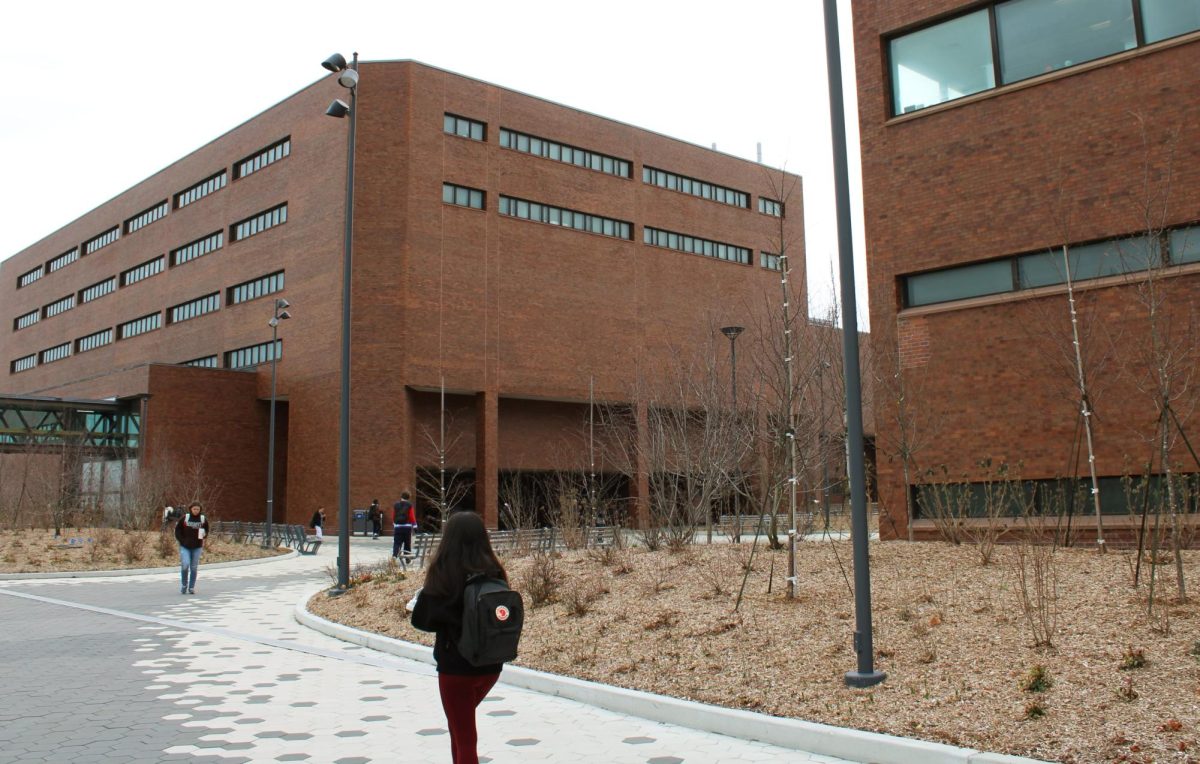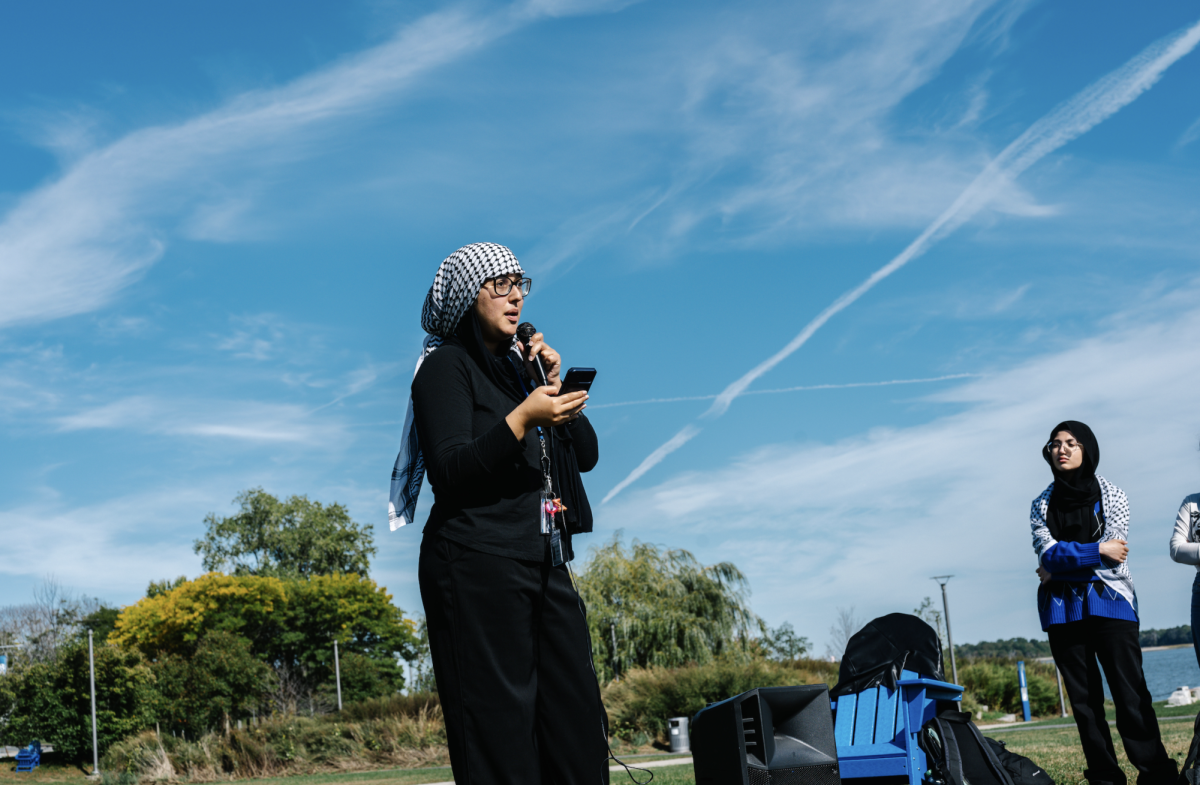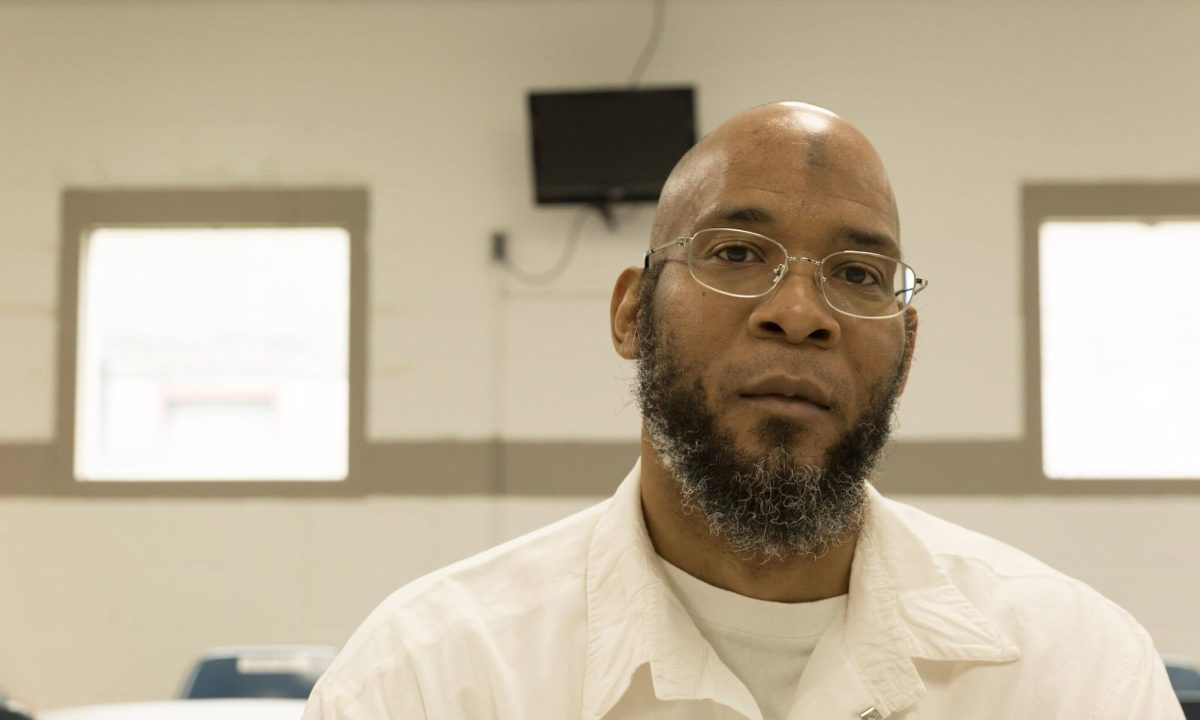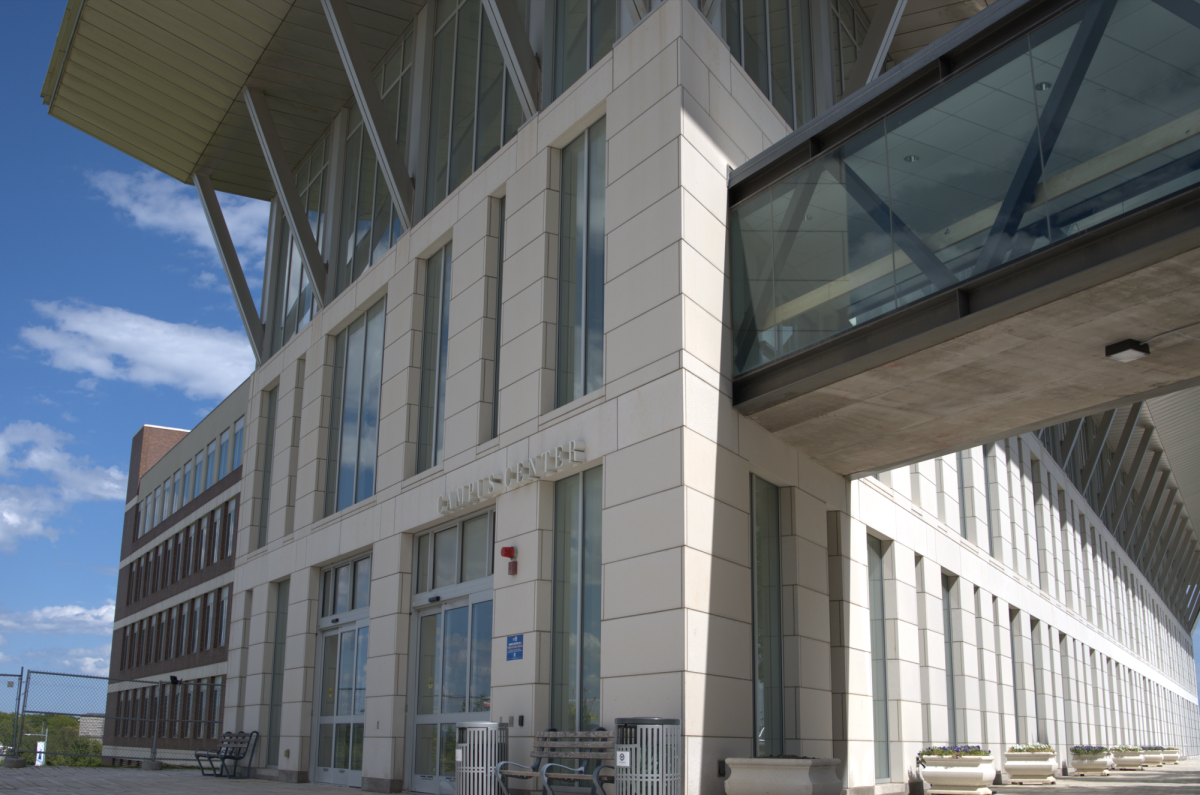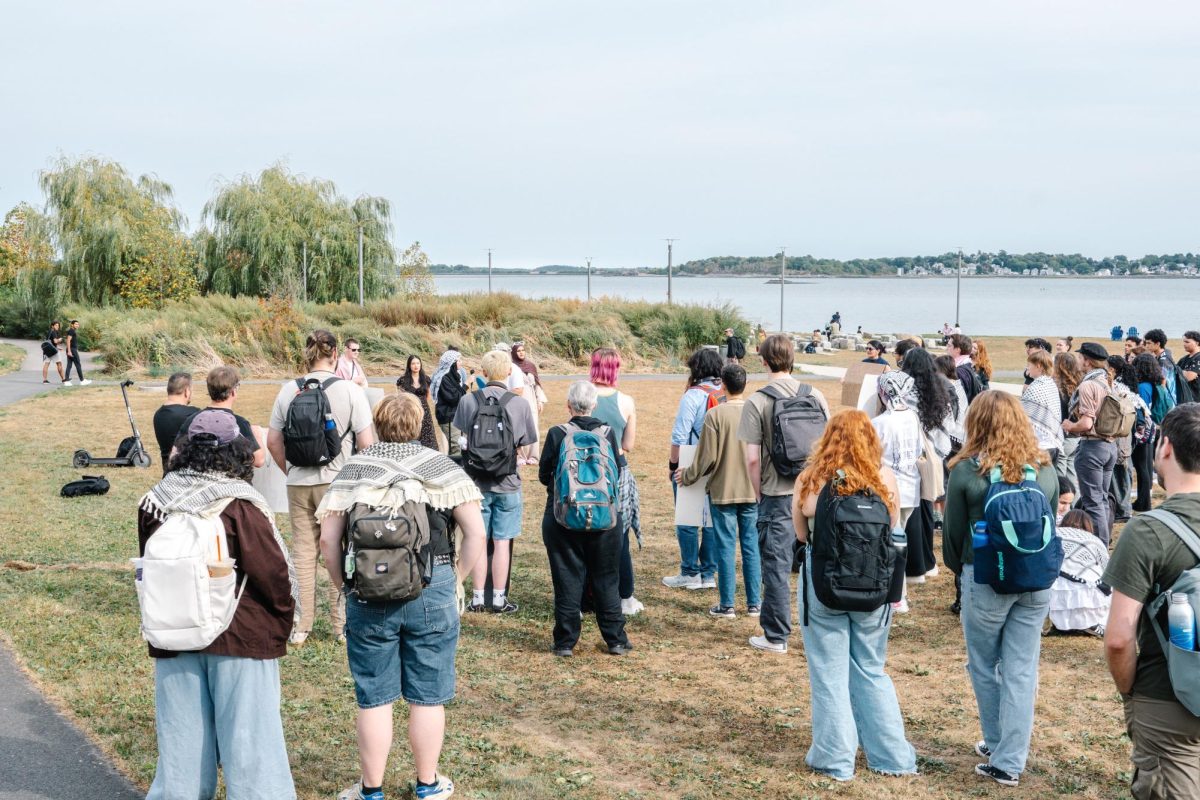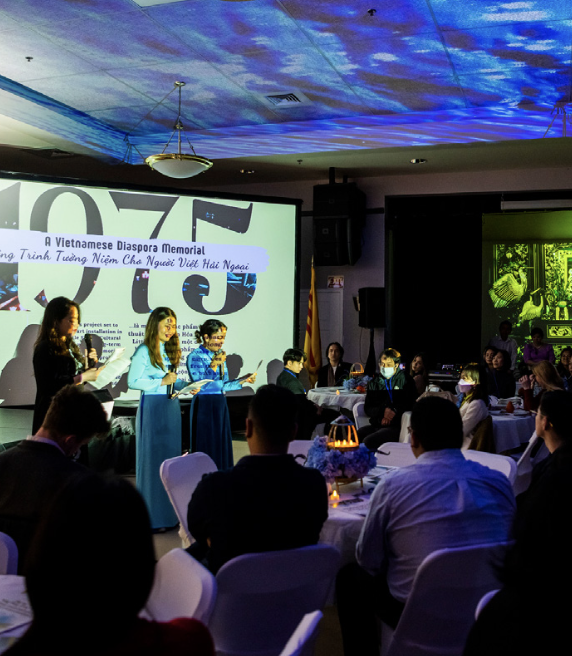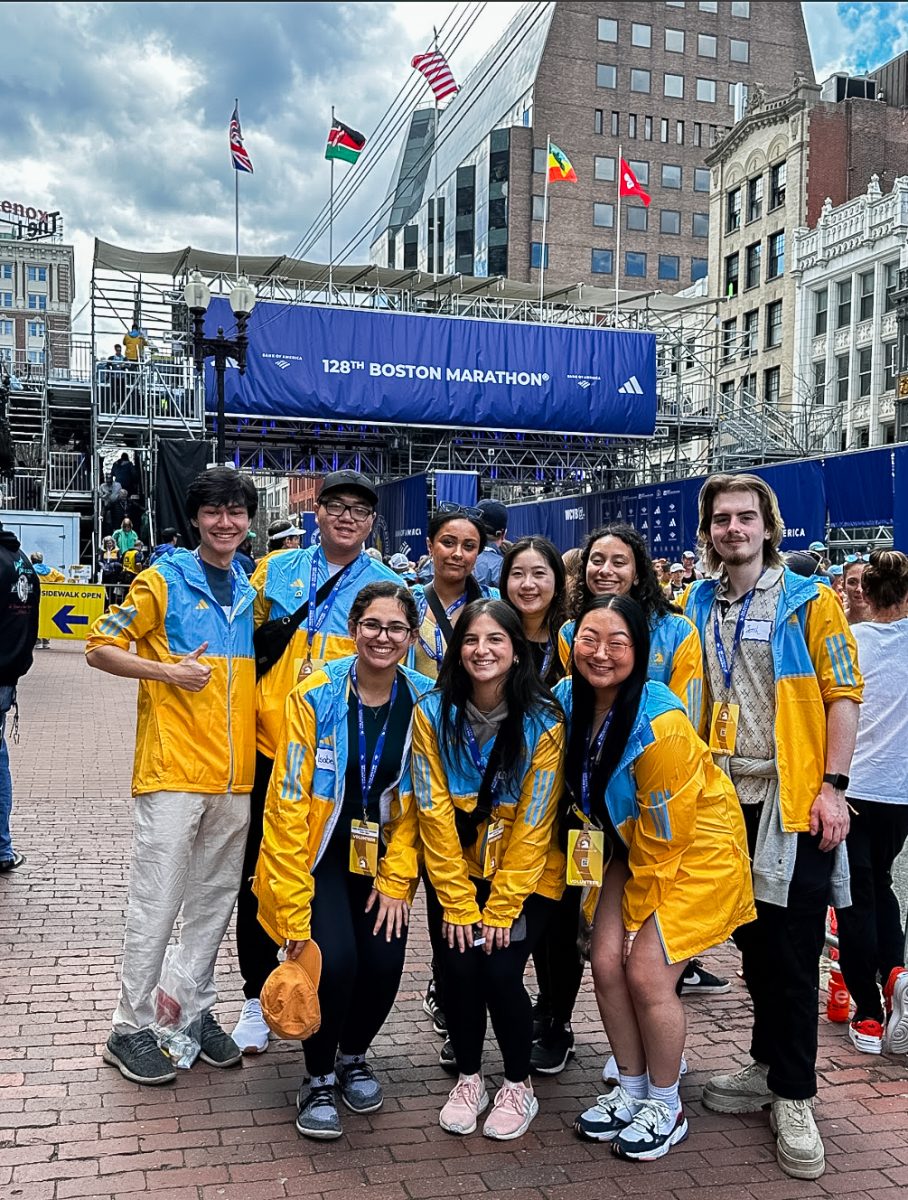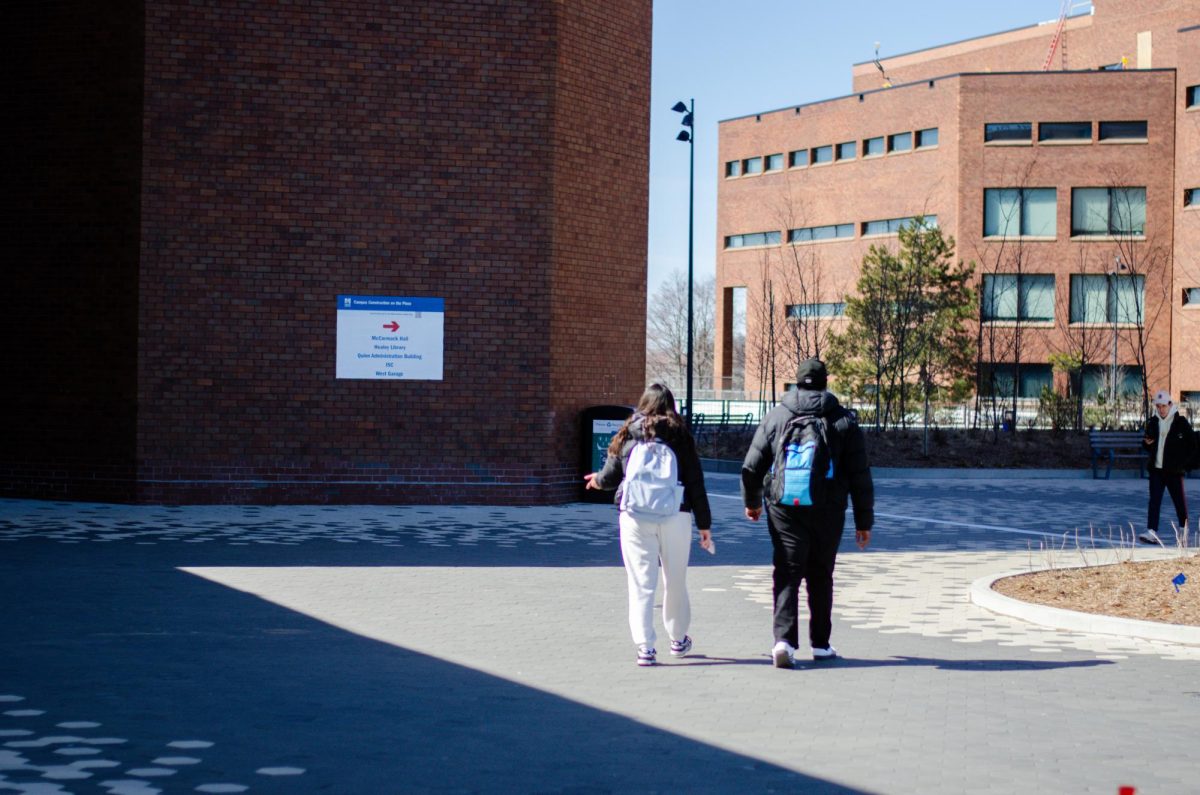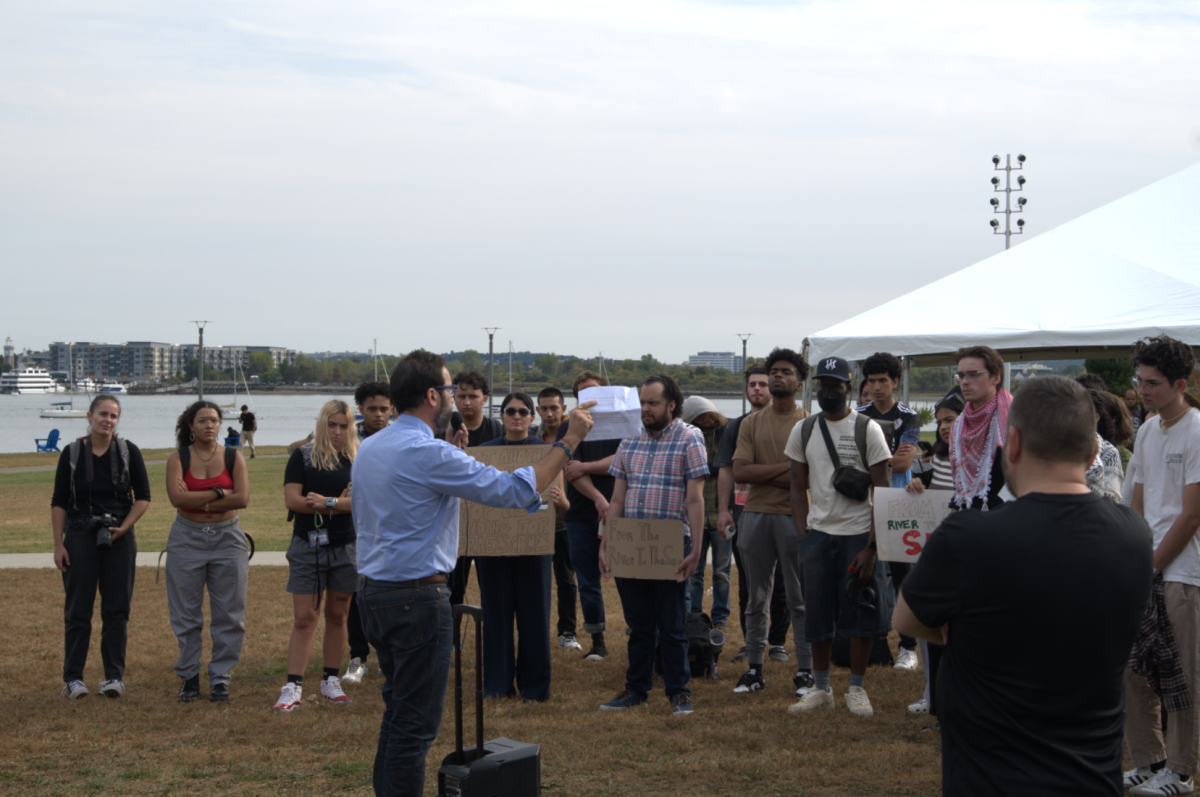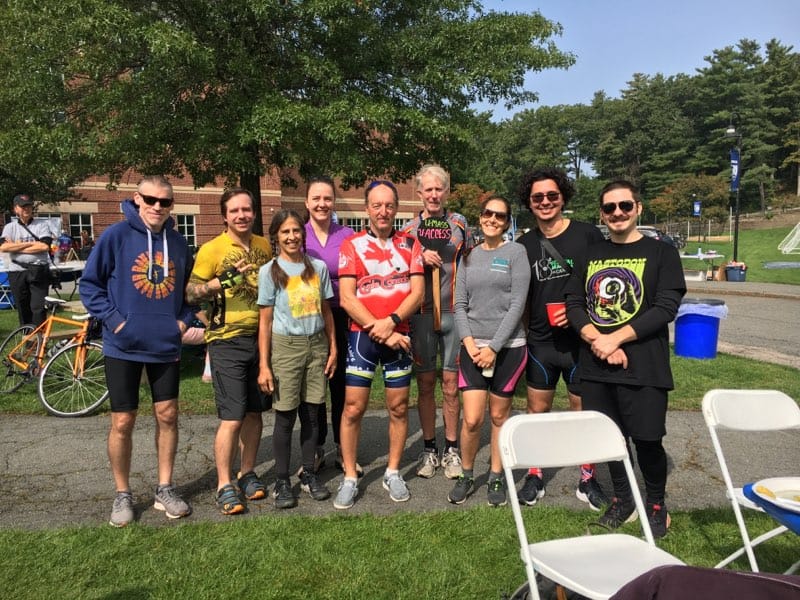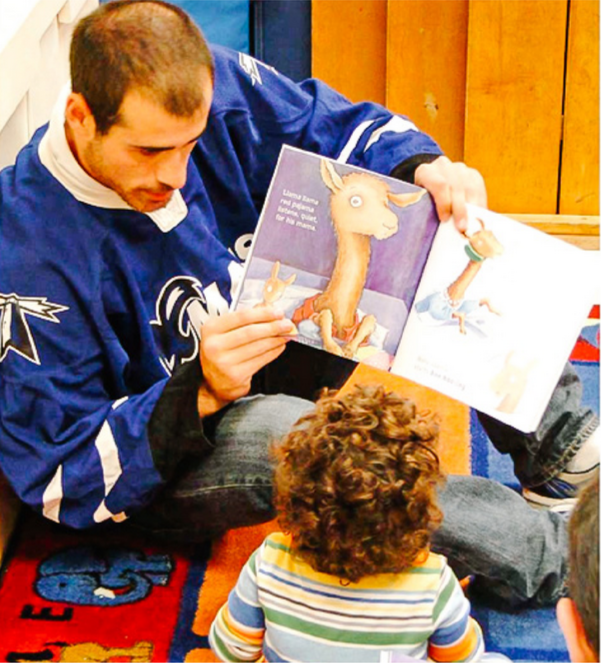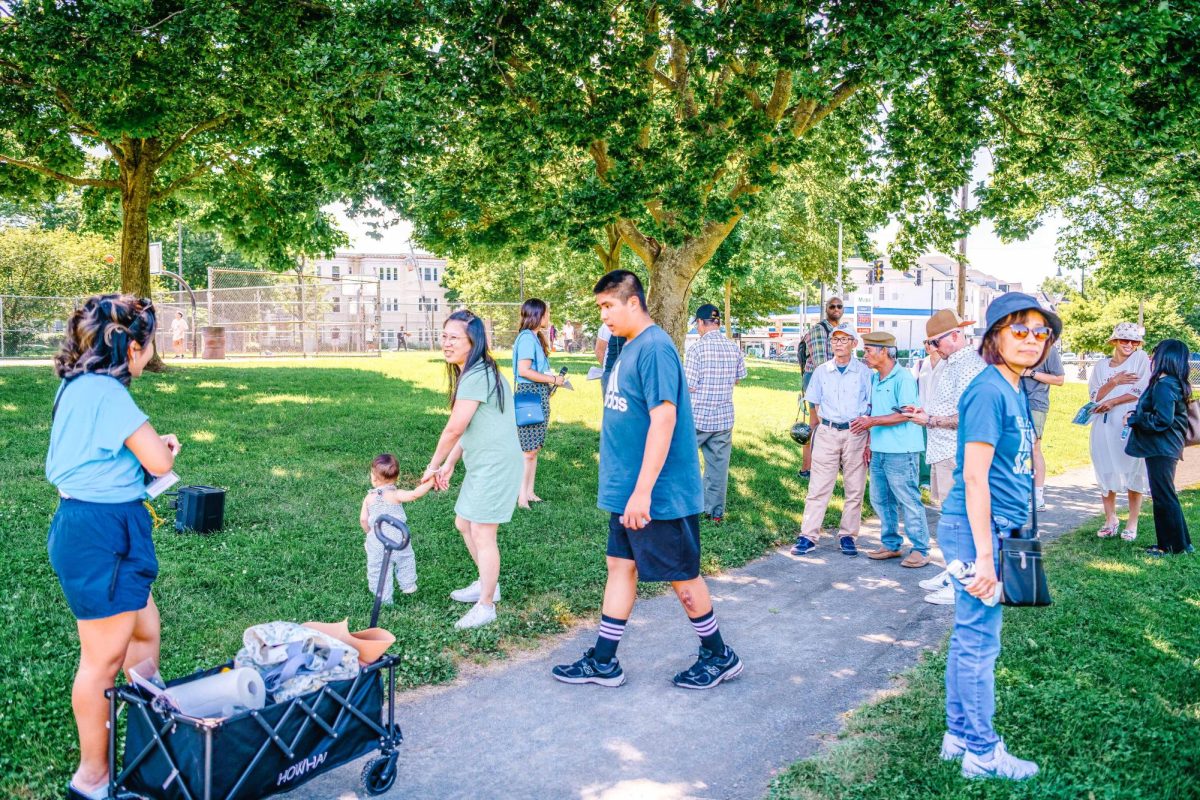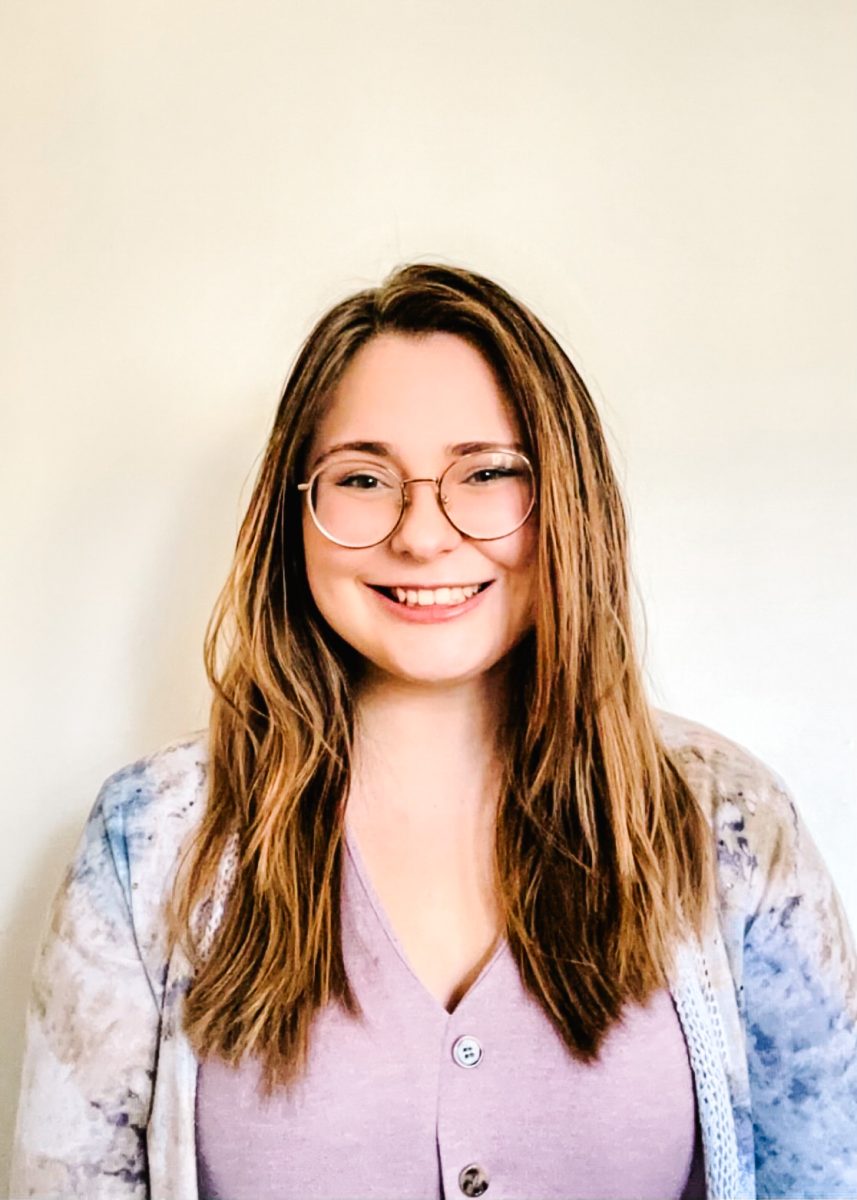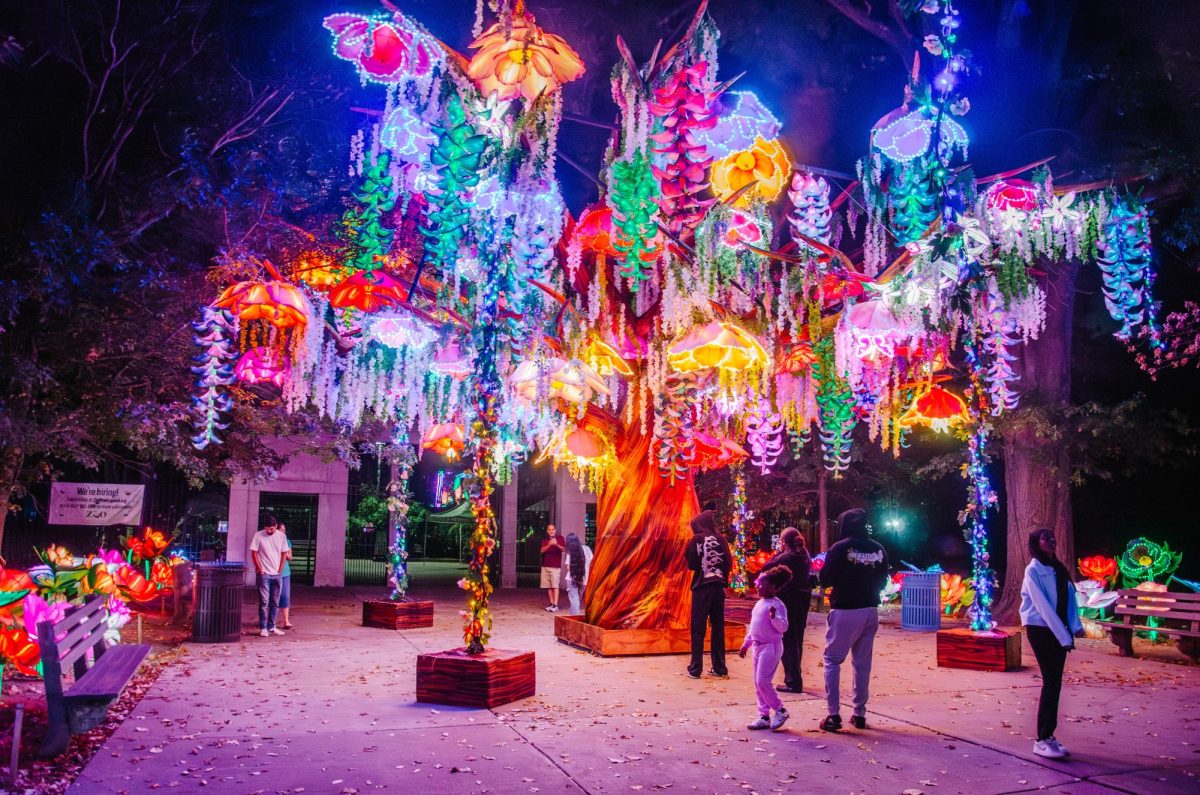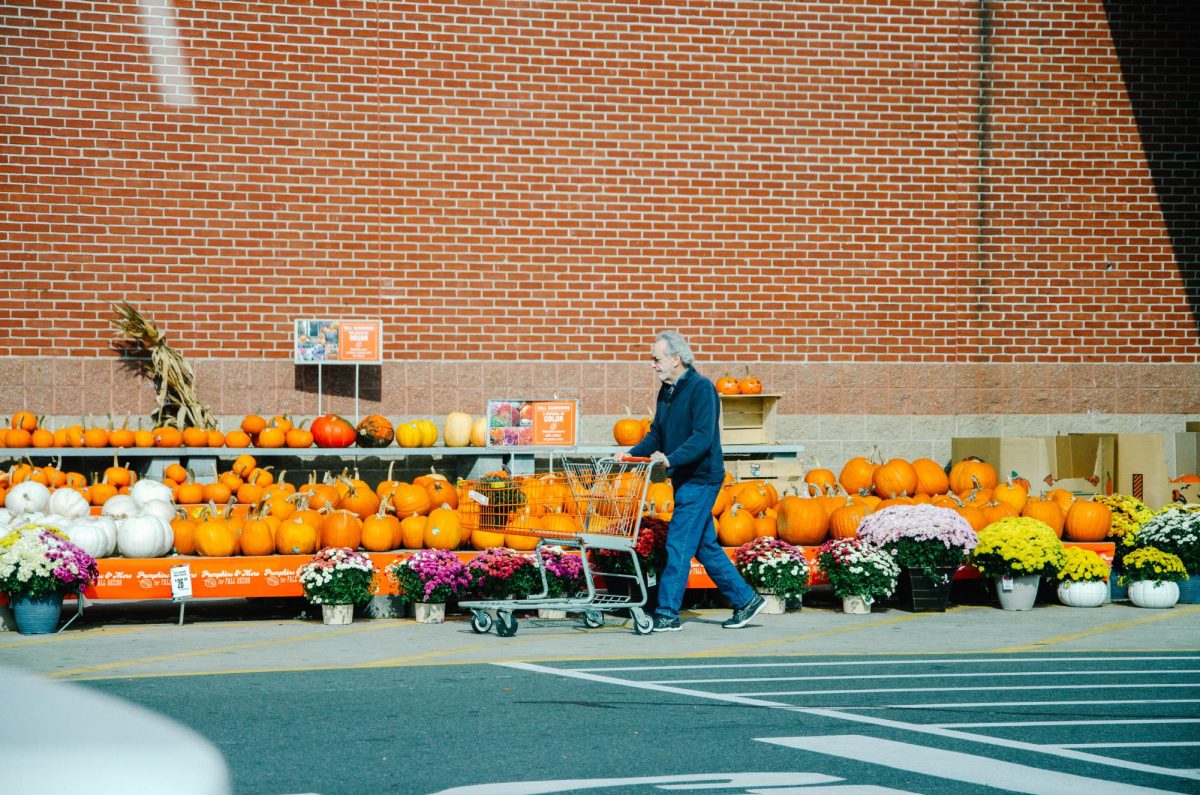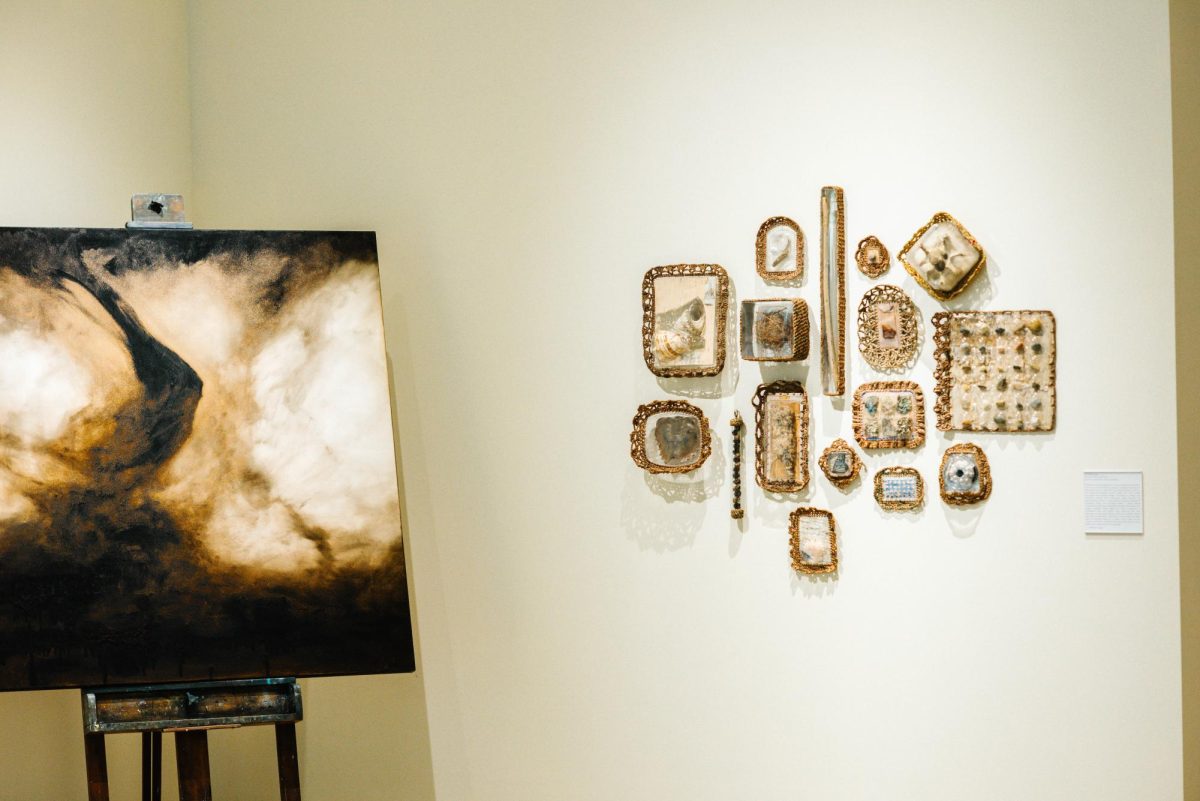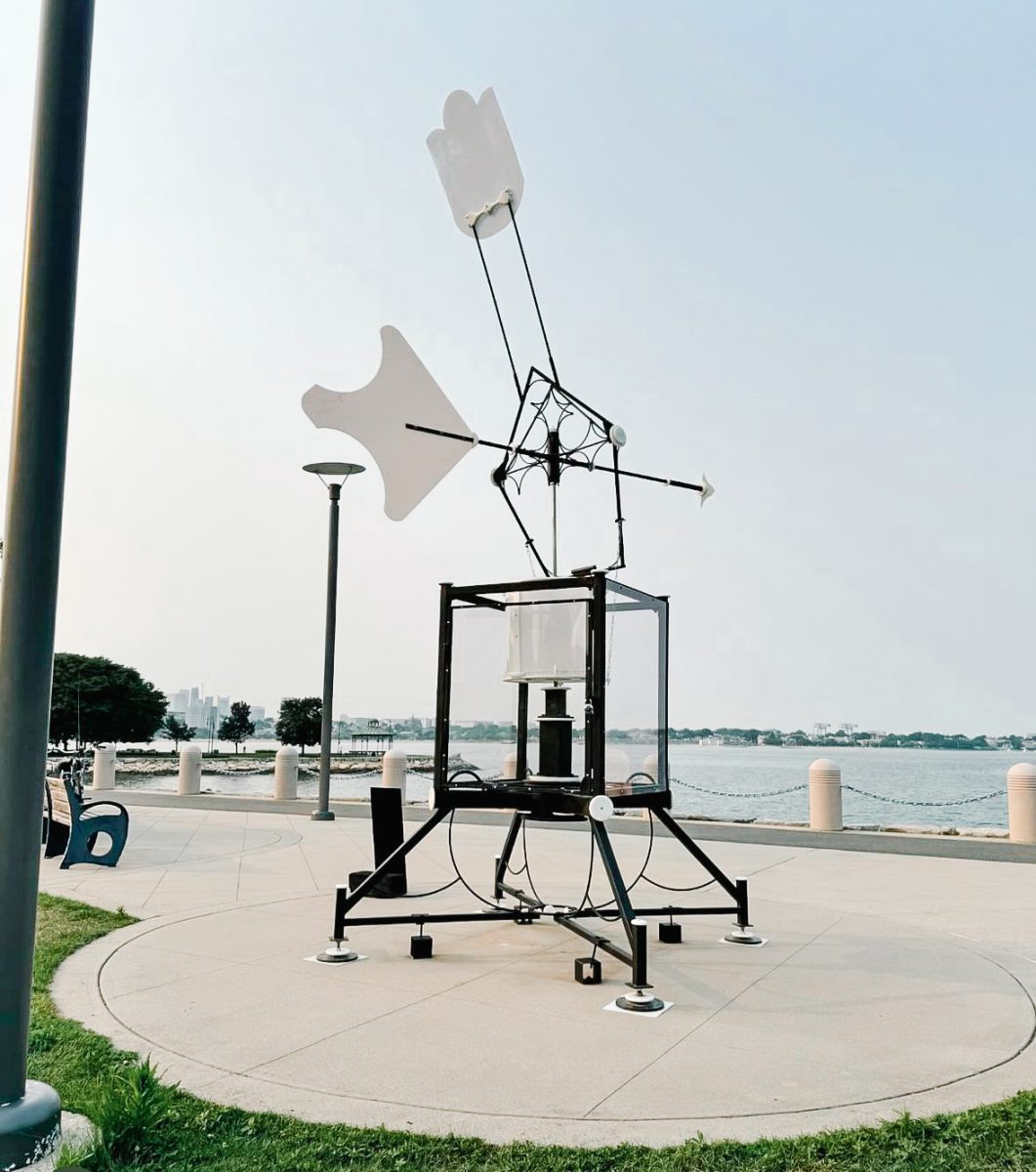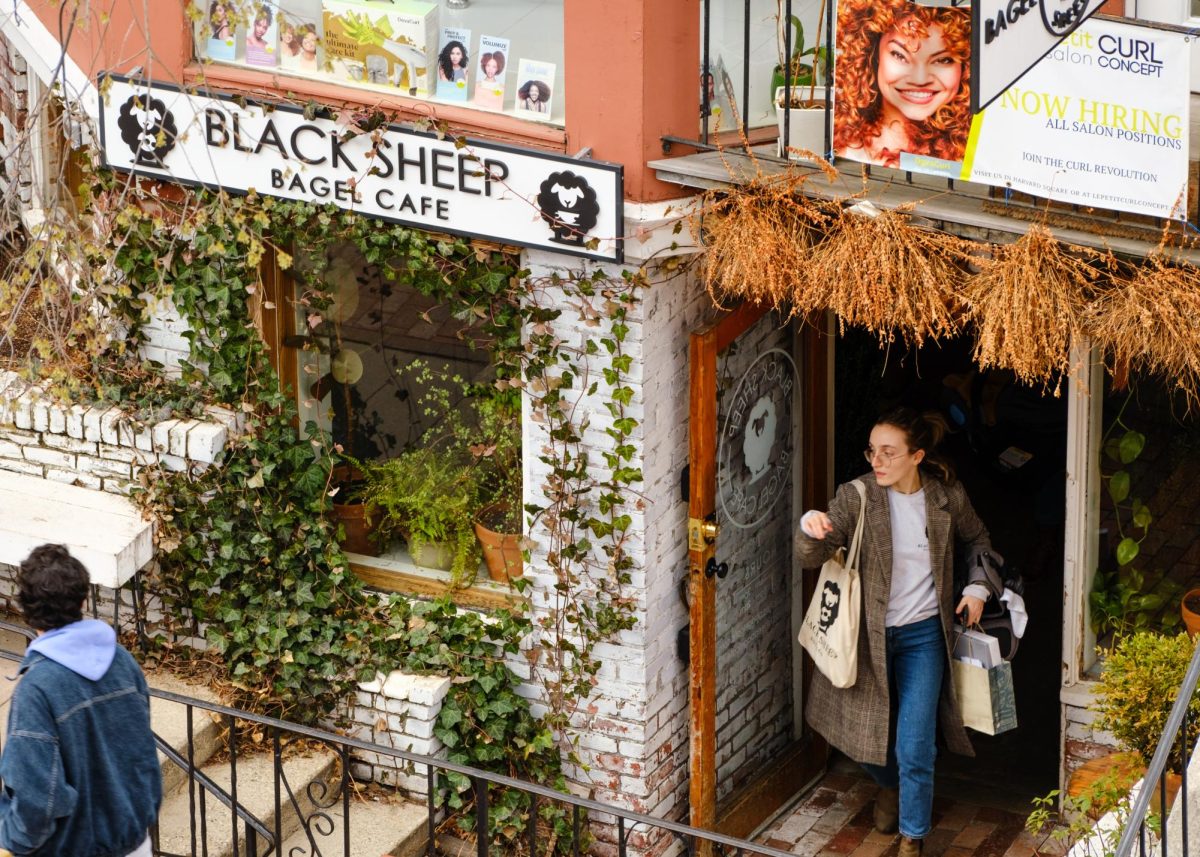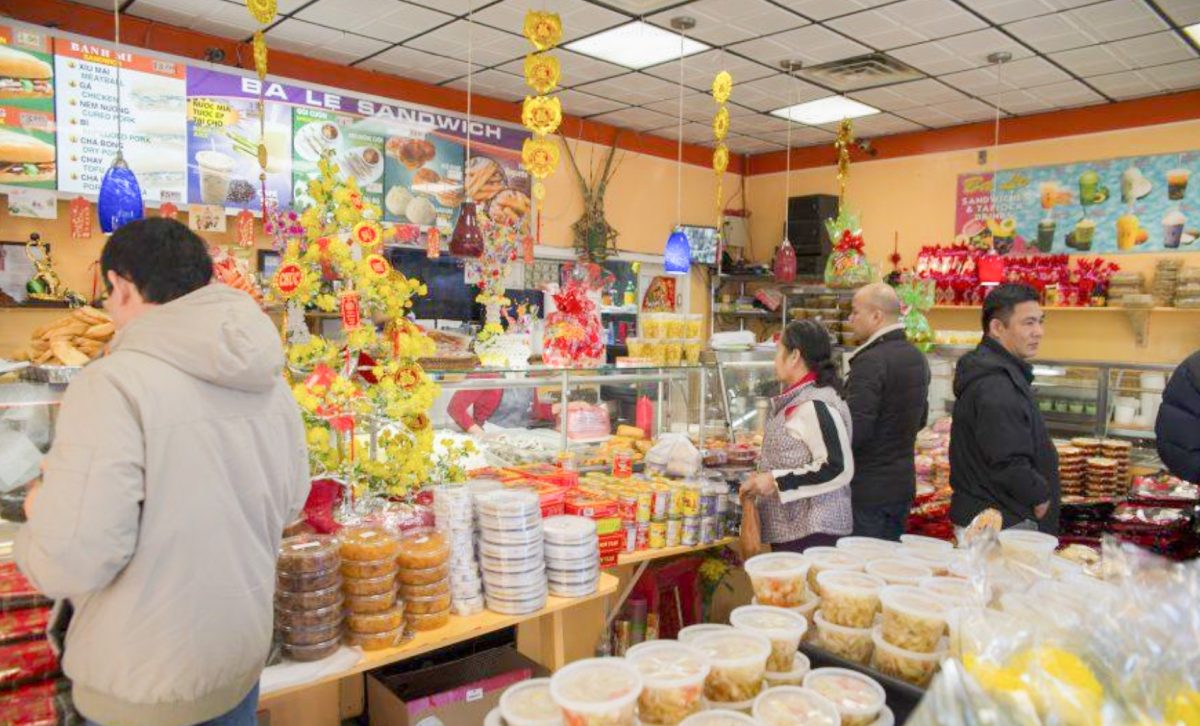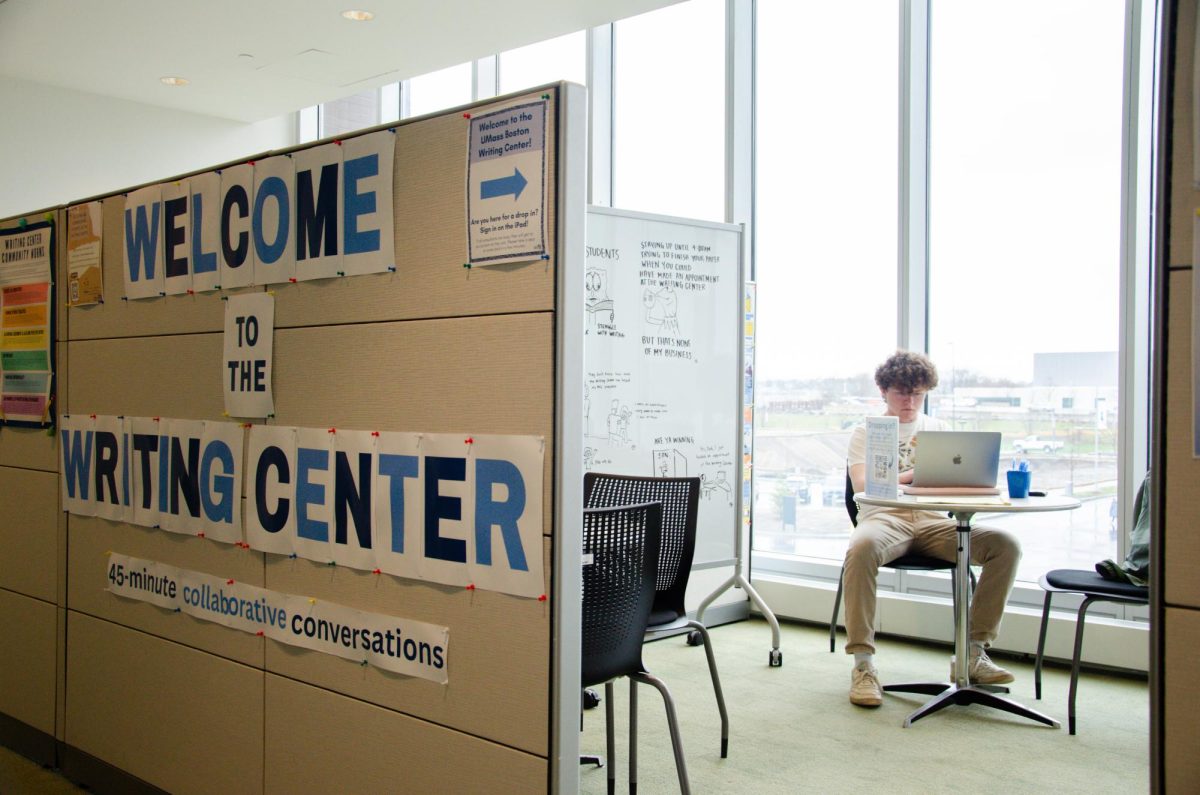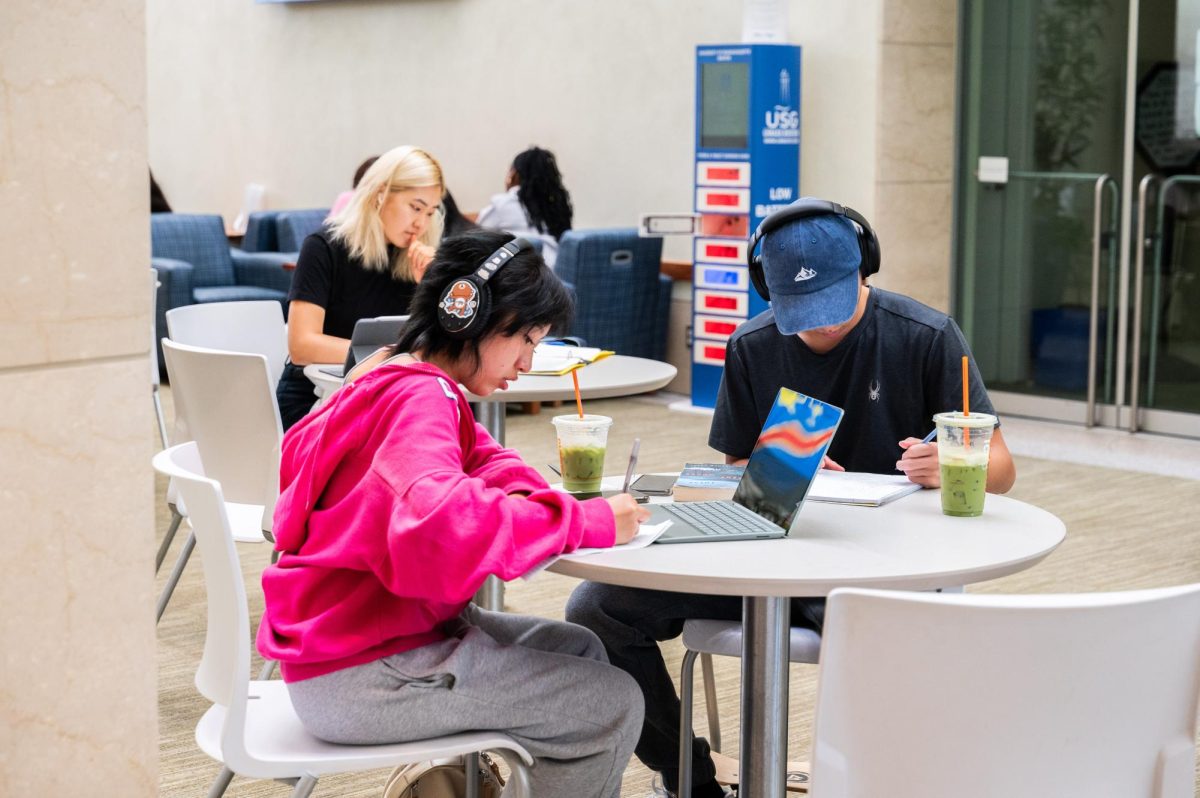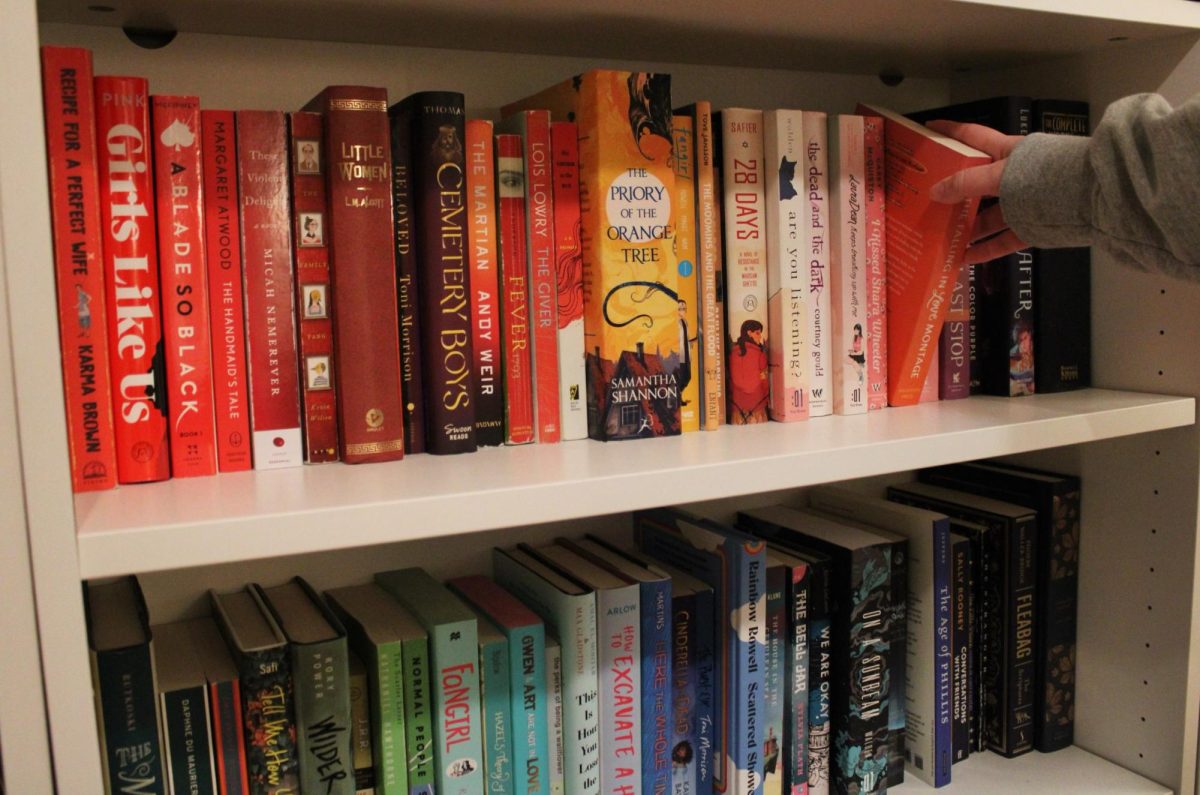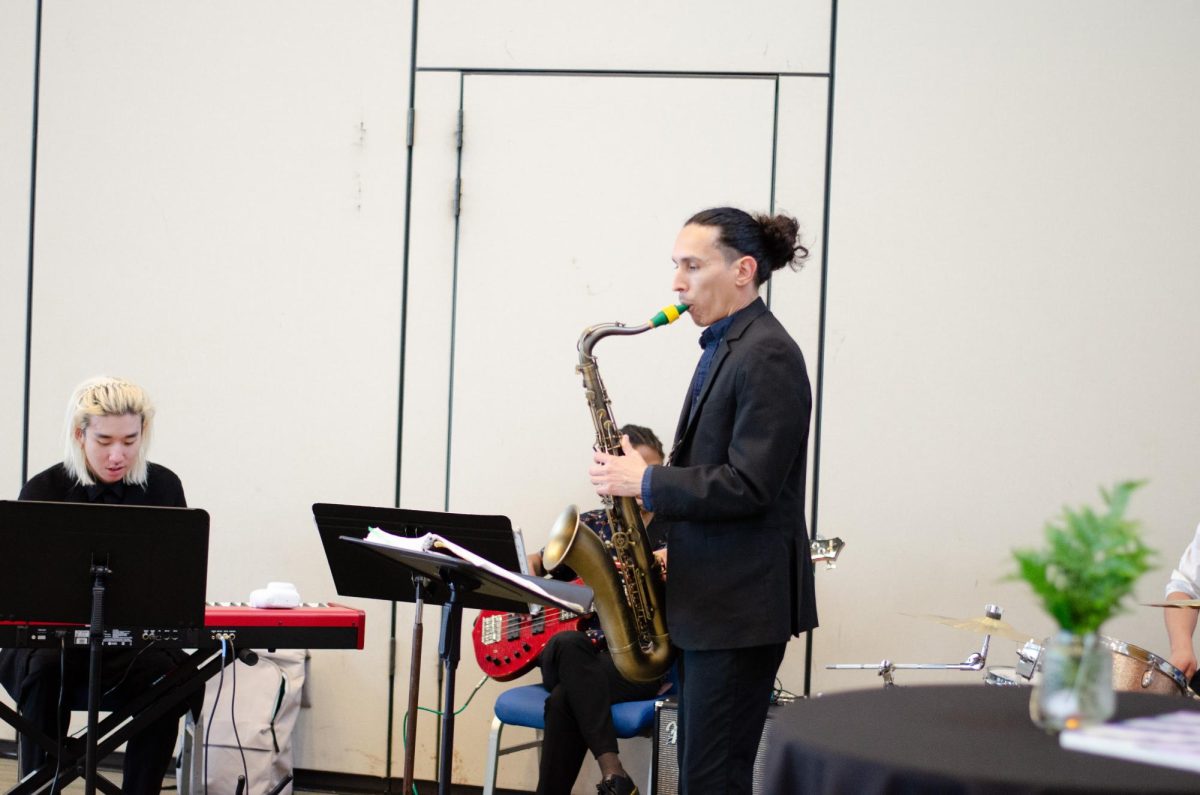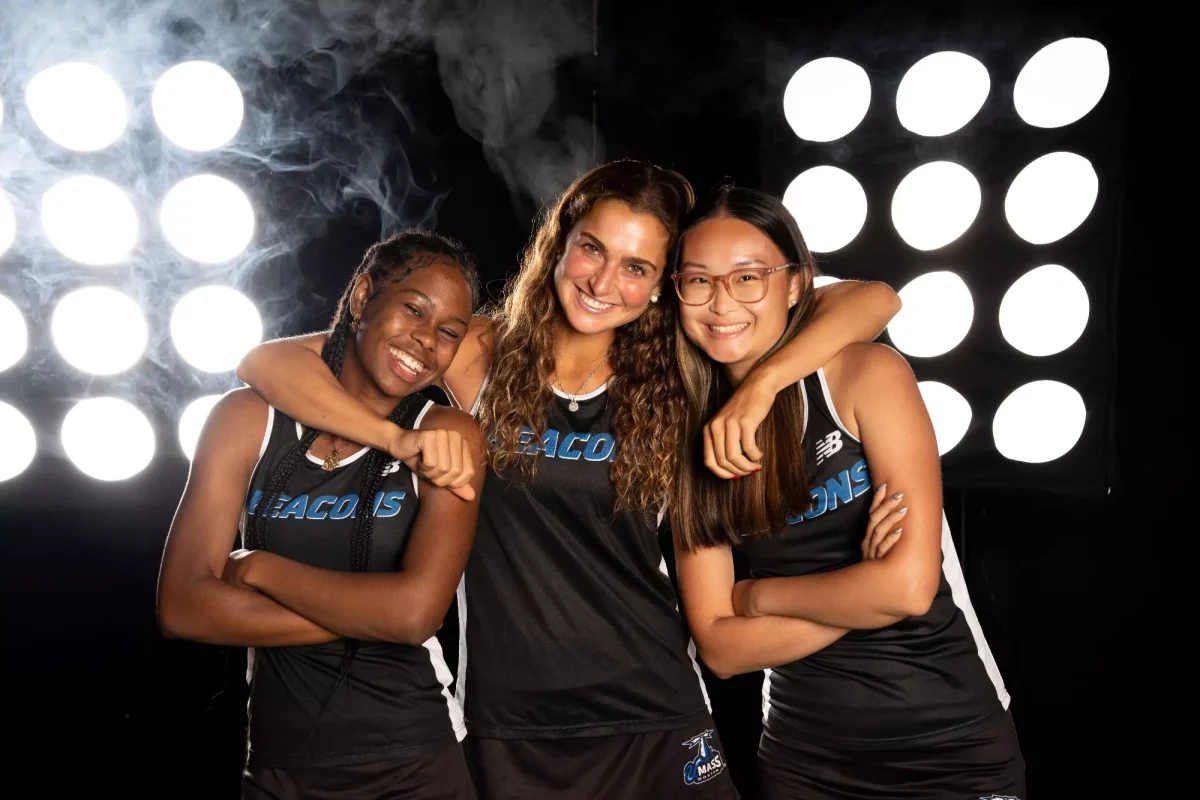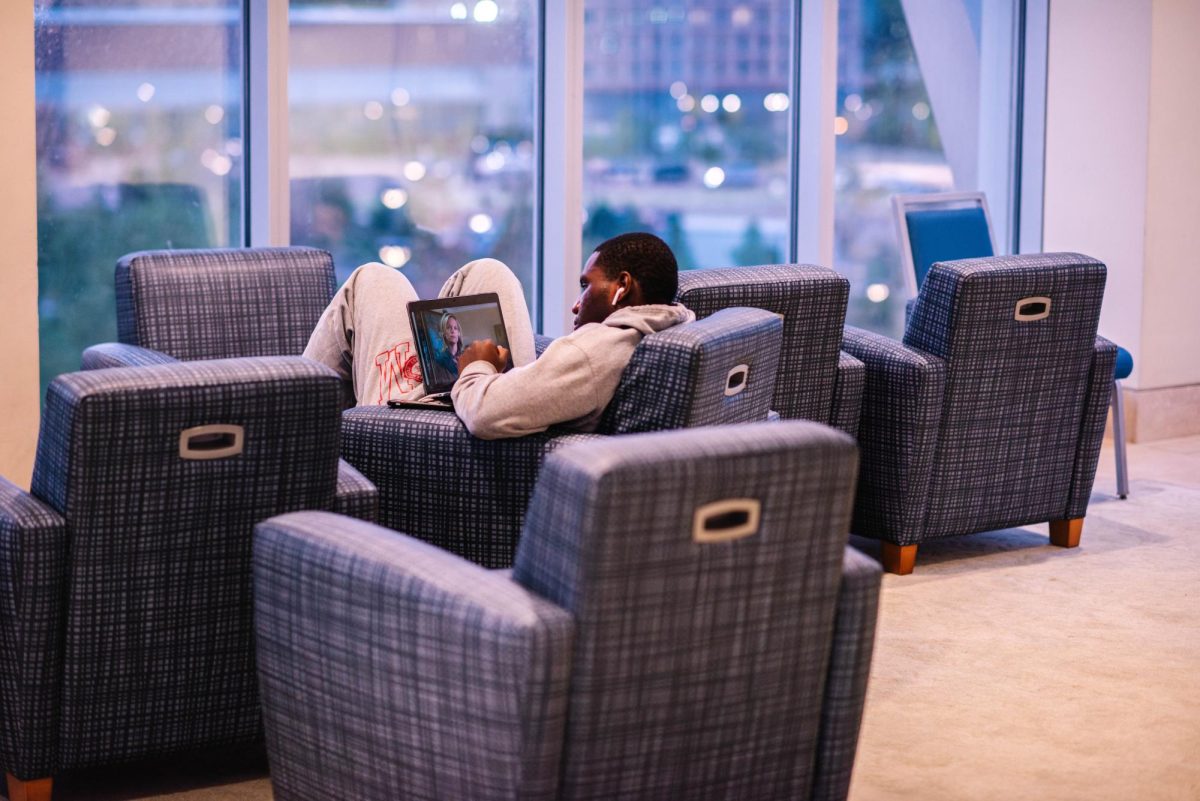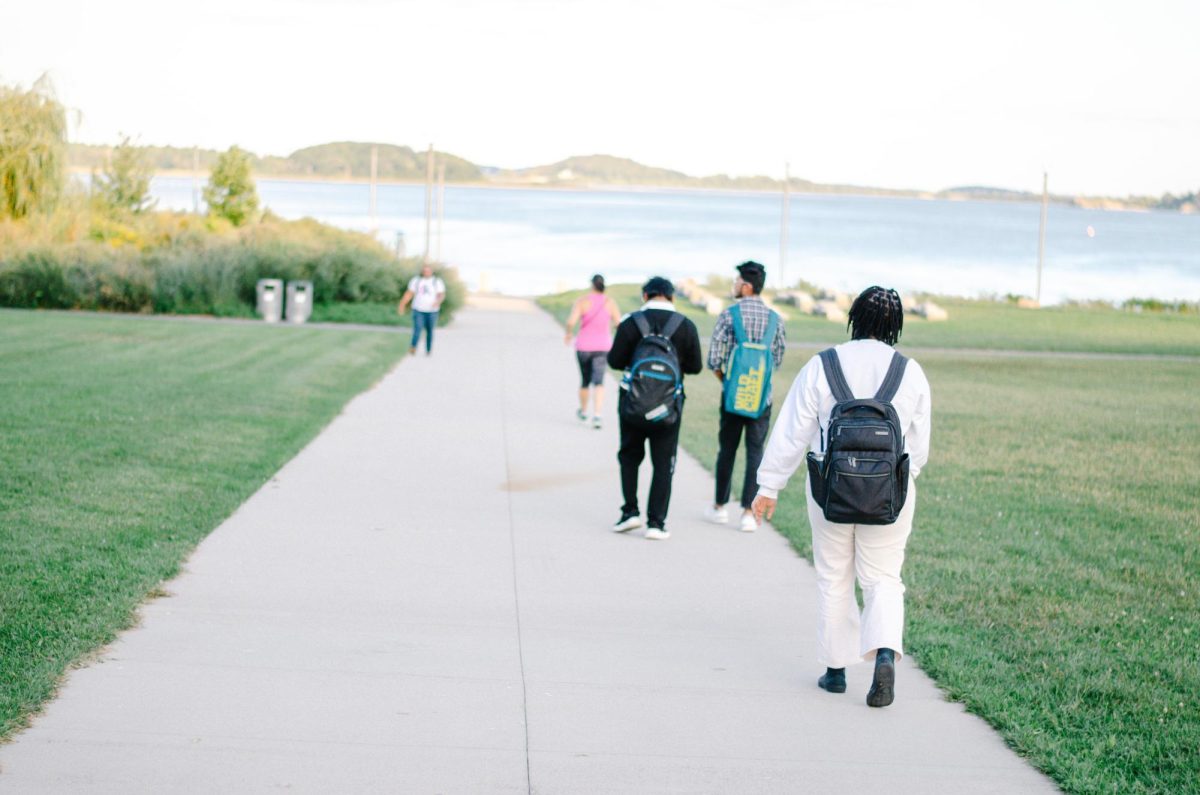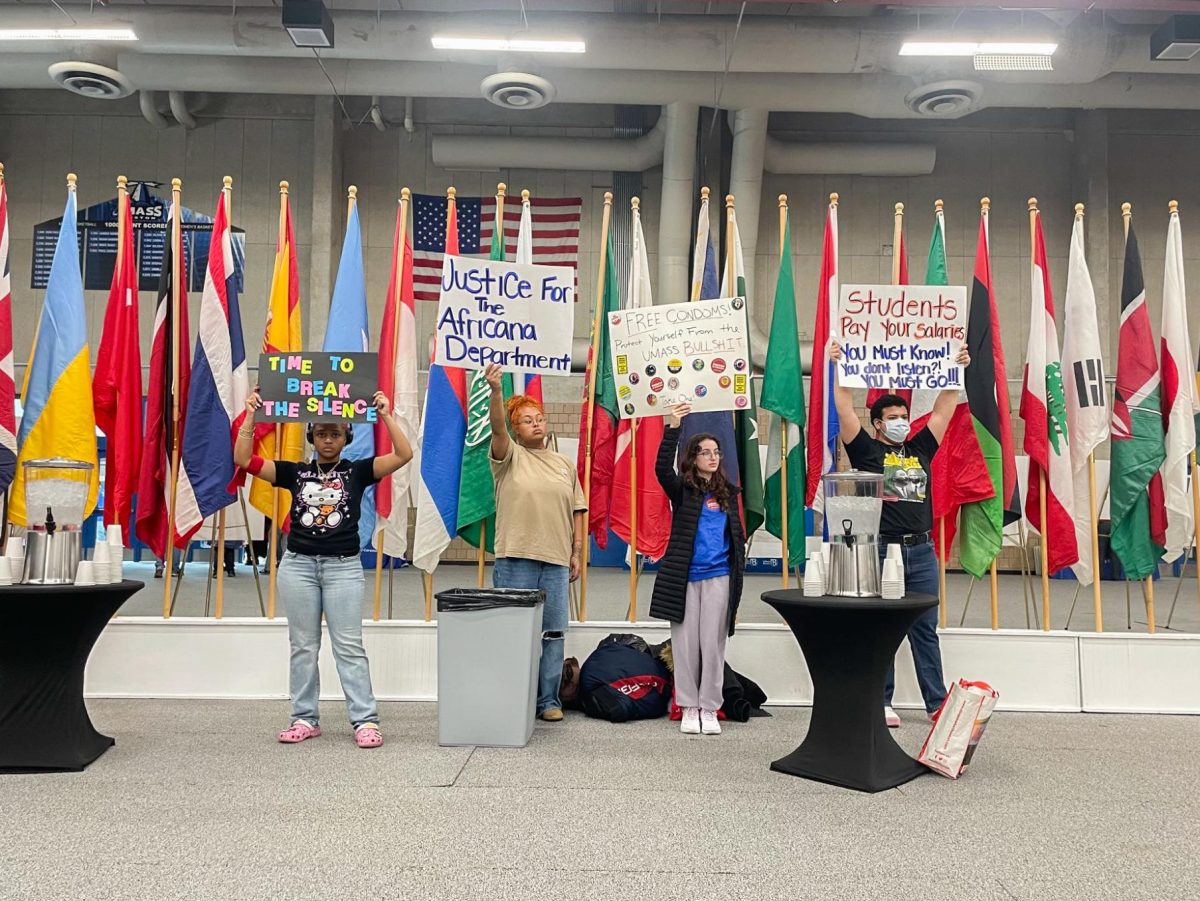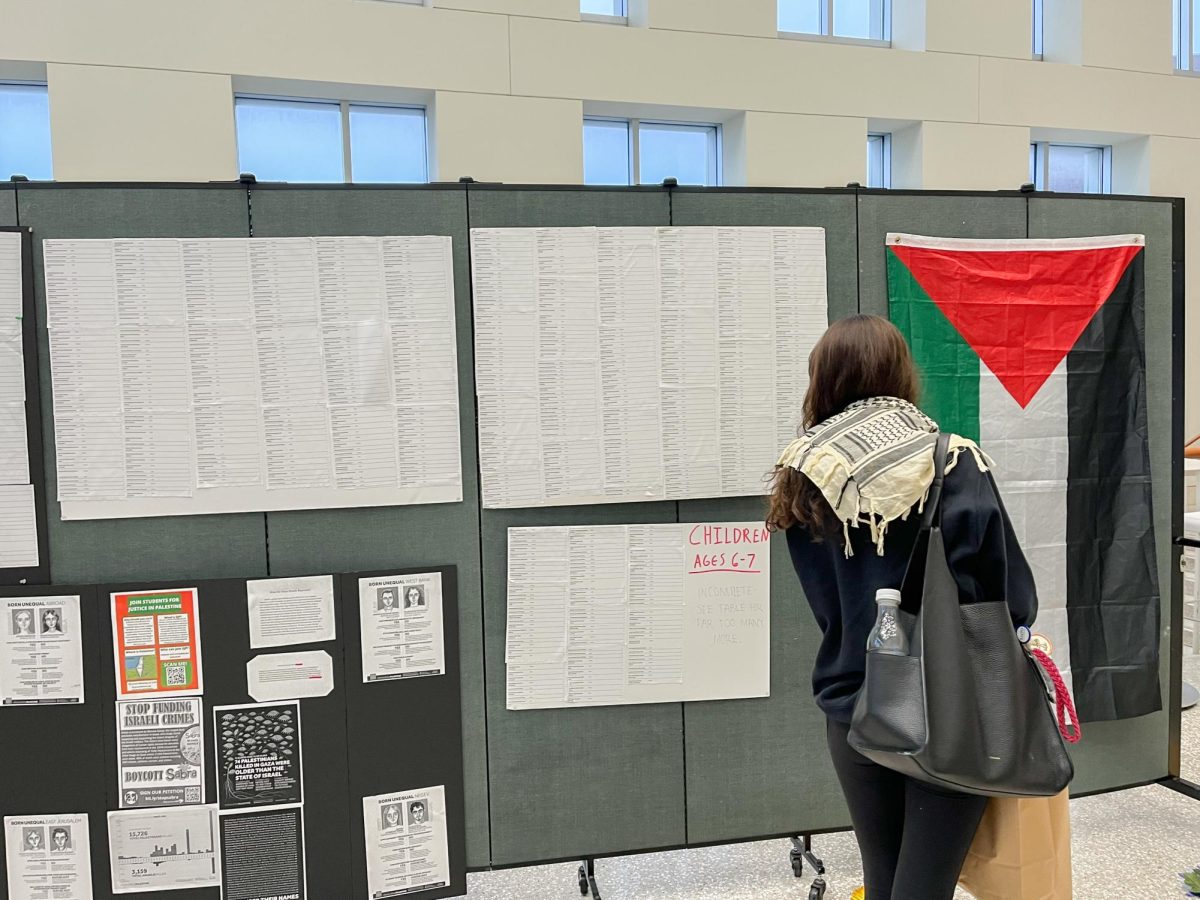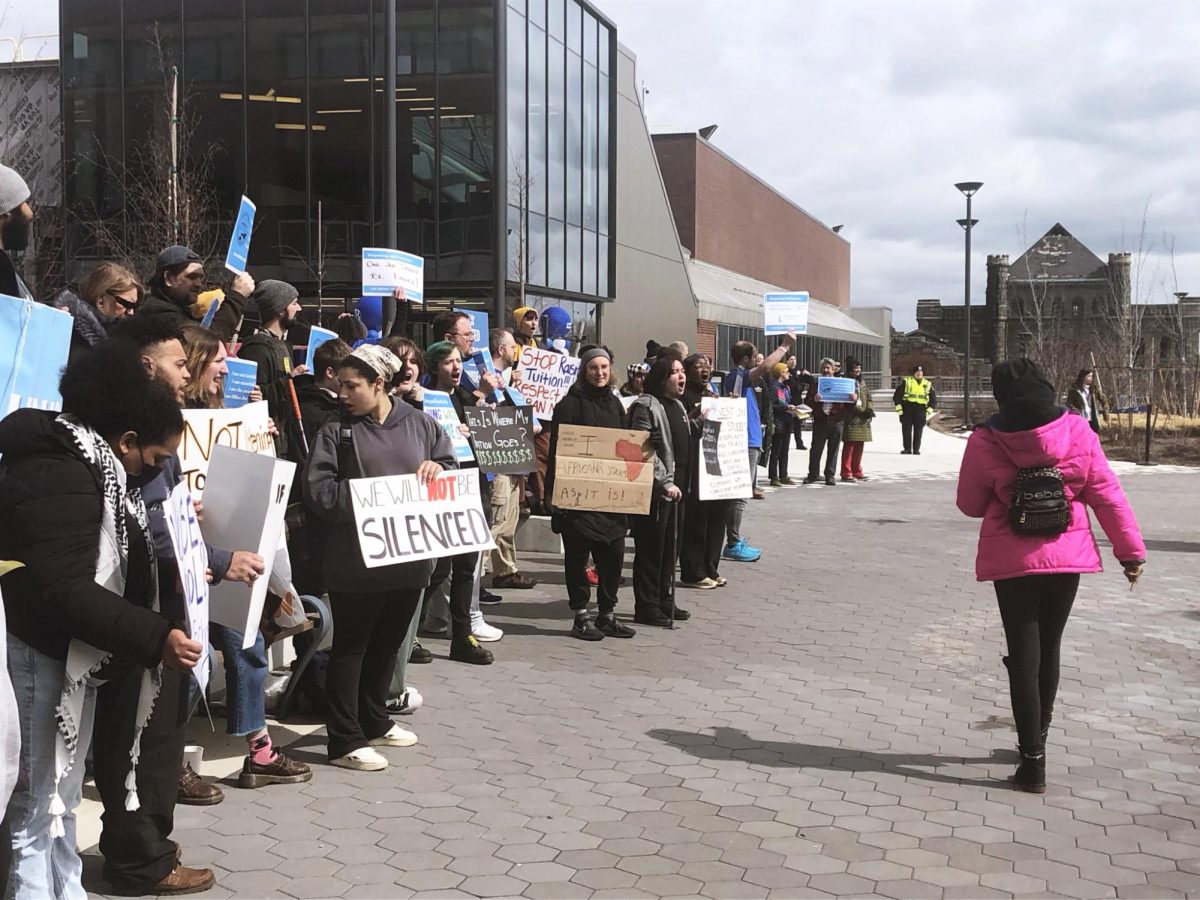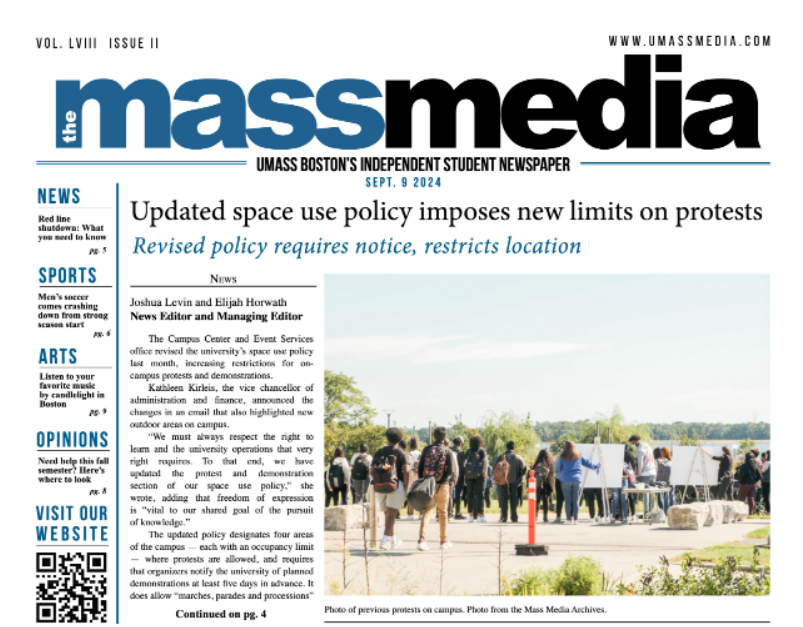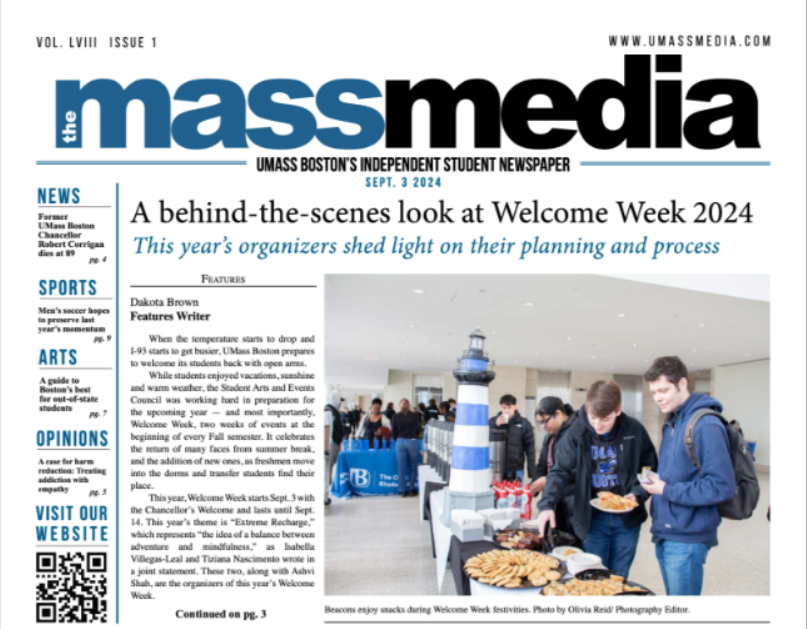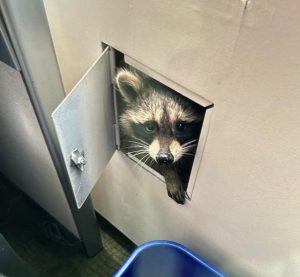Welcome Week Returns for Second Semester
February 5, 2004
Everybody knows it’s the opening week of a new semester when the information tables, stacked high with piles of leaflets, fliers, pamphlets, telling of open courses, chancellor’s luncheons, and free e-mail for life, are out in the Quinn Building and the McCormack and Wheatley Halls.
Hot chocolate and cider are served in the Science Center’s second floor, bagels on Quinn’s upper level. Forty-five minute tours of the brand new Campus Center are held, offering the community a peek into the first new campus building in twenty years, which many expect to radically change the face of the university. Students and staff, some for the first time, are able to see where their offices will be several months from now.
As the lights dim with the day, and students leave for apartments in Harbour Point, the rest of Boston, and its zsurrounding communities, one light often remains on in the Quinn Building, that of the opening week festivities’ architect, Dr. Keith Motley.
“I think it’s another exciting time for UMass Boston,” Motley said. “We were able to make sure that the campus remained vibrant in this cold weather.”
Eearlier, Motley spent a short time monitoring one of the tables, “So the kinds of questions that people were engaging me in were questions regarding course registration, where classes were, you know, financial aid, drop/add. They were talking to me about things like the Campus Center opening, when that was going to happen, when they could go on tours,” he said. “So it was really a learning experience for me. I was able to really focus in and really make some points of note for myself, as someone who’s been here for little over a semester.”
It was good being able to contrast the opening week festival, Fest-of-Us, in the fall and the one this winter, he said, adding, “The winter confines you a little bit,” since nothing could be done outside on the scale of Fest-of-Us.
These are the small signs that strides are being made to improve student life, and re-invigorate it. Several weeks ago, Motley, along with the heads of student affairs of the other UMass campuses, had the chance to speak on the way student life was conducted and managed on their respective campuses to the committee on academic and student affairs to the Board of Trustees.
“I felt really good about that,” he said of the meeting. “I think we were really able to articulate why the out-of-classroom experience is such an important one on a college campus. We were able to emphasize our STARS program,” where the whole campus is meant to be part of the educational process, from faculty to staff to students.
“And [also] how we’ve been able to build an agenda here, using what was in place and what was newly developed in a process that we think is going to galvanize the campuses as we move through the remainder of the academic year.”
At the meeting, two representatives from the Lowell student affairs office, Tom Taylor and Larry Siegel, pointed out the parallel between being a parent and being an administrator.
Interim UMass President Jack M. Wilson joined in, noting how it was an “invisible education,” one that couldn’t be touched, smelled, or felt. Wilson, a former physics professor who went on to become CEO of UMass Online and UMass Vice President of Academic Affairs, noted how it’s an excellent experience from a faculty standpoint. He told of how he always taught an undergraduate course so he could invite students into his graduate programs. Part of being a kind of parent again was watching with pride as the students developed life skills, he said.
When Trustee John DiBaggio, the former president of Tufts University who was recently appointed by Governor Mitt Romney, said that in the evolution of student affairs, something was being lost in the process with the faculty no longer having a sense of responsibility, Motley took the opportunity to point to STARS. Using everybody on campus as a resource, traditions are being created, he said. “We’re proud of this profession,” he told the committee.
And what of adult students, UMass Dartmouth Chancellor Jean McCormack asked.
Adult students bring valuable experience, Motley responded. “I’m trying to get them involved in events and engage them.”
In comparison to the other campuses and their presentations, “we held our own,” he said, back at his desk. “I think we’re ahead of a lot of folk.”
Motley then turned to his computer, ready to answer the many e-mails he receives each day. “I think we are in a mode of development,” he said. “We’re building on tradition, we’re not resting upon it. I think whenever you’re building on a tradition, you’re in a better position than when you’re sitting there, resting on your laurels. We don’t do that. We can’t afford to do that.”

